Trust is the foundation of our professions, and respecting patients' and research participants' rights to maintain the privacy of their health information is essential to our commitment to providing quality health care. This is why we have processes in place to ensure the confidentiality and integrity of health information.
The Health Insurance Portability and Accountability Act, known as HIPAA is a set of federal regulations governing the requirements for handling and storing patient health information.
The University is considered a "hybrid entity" under HIPAA, which means that some parts of the University are subject to HIPAA and others are not. To eliminate confusion and to ensure we are using best practices, the Health Information Privacy & Compliance Office (HIPCO) is here to help University faculty, staff and students navigate HIPAA policies and procedures.
When to contact HIPCO
- Training for your unit on HIPAA issues.
- Direction on getting authorization to use individual health information or the right way to handle that information.
- Reporting a possible violation of HIPAA.
- Answers to questions about HIPAA in general.
New employees and new students enrolled in health sciences schools are automatically assigned to HIPAA training. The latest HIPAA Steering Committee report showed that new HIPAA training delivered in fall 2019 has now been taken by 80% of the 15,000+ employees and students who have been assigned the training.
Let’s work to make that 100%.
HIPCO provides crcial oversight, training and support to the health sciences so we can maintain patients’ trust and fulfill our responsibility to provide the highest quality of care.
Driving Innovation and Discovery
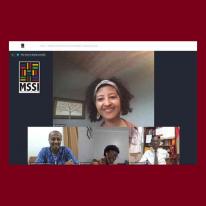
Convening for Care: UMN Partners with Ghana NGO on Obstetric Fistula Training
For over a year, the Center for Global Health and Social Responsibility has partnered with the Medical and Surgical Skills Institute (MSSI) in Ghana to facilitate global capacity building activities. The MSSI, a health training center that provides medical and surgical skills training to advance health care in West Africa, has been pivoting their work to online training and activities in the wake of the COVID-19 pandemic.

Bakken Medical Devices Center to Join the Innovation Pillar of the Institute for Engineering in Medicine
The Earl E. Bakken Medical Devices Center (BMDC), an internationally known center of excellence in the training and practice of medical technology innovation, is being incorporated within the Institute for Engineering in Medicine (IEM). By capitalizing on their combined expertise, experience, and institutional support, BMDC and the IEM aim to make the University of Minnesota known nationally and internationally as a top leader in medical technology innovation.
Advancing Interprofessional Education & Training
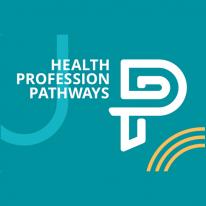
Launch of Health Profession Pathways Program
The Pre-Health Student Resource Center is excited to launch the Health Profession Pathways program, which supports undergraduate students from historically underrepresented communities in reaching their goal of becoming a health professional. The program will enroll up to 20 incoming first-year students from the President’s Emerging Scholars program for the 2021-2022 academic year.
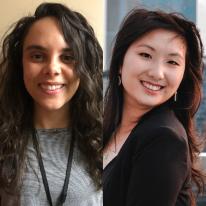
OACA Interprofessional Internship Highlight: M Health Fairview Team
Emily Moccio, MSN, DNP ‘23, from the School of Nursing, and Karen Chen, BS, MPH ‘22, from the School of Public Health, are working to initiate a process for the creation of a repository for the housing of all student clinical quality improvement (QI) and process improvement projects within M Health Fairview. The first step towards meeting this goal has been to gain a preliminary understanding of the current processes in place for the management of QI projects within different specialties.
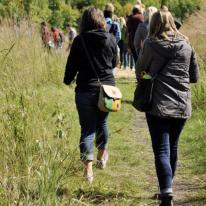
Global Health in Local Contexts: Course Applications Now Open
Global Health in Local Contexts: A Transnational Experiential Course on the Social Determinants, Health Equity, and Leading Change immerses students in the study of health equity, the social determinants of health, and community-based health care. New in fall 2021, students will engage in co-learning with peers in Uganda and Haiti enrolled in parallel courses. This program has both academic credit and non-credit registration options; applications are due June 4.
Partnering With Communities
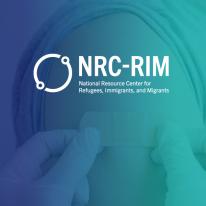
Vaccine Resources for Refugee, Immigrant, Migrant Communities
The National Resource Center for Refugees, Immigrants, and Migrants has curated several resources and easy-to-customize campaigns that support vaccine planning, roll-out, knowledge, and confidence among RIM communities. The Get the Facts and Get Vaccinated campaigns include translations in more than 30 languages. The Vaccination Is campaign includes a toolkit so anyone can plan, create, and validate their campaign in partnership with their local community. All resources are free to use and distribute. Please spread the word by sharing these resources with your communities.
U-Wide Events and Opportunities

Envisioning the Learning Health System
Join the Institute for Health Informatics Distinguished Speaker Series on June 11. This presentation will describe a learning health system in terms of data-driven health improvement cycles directed by multi-stakeholder learning communities, with all cycles supported by shared socio-technical infrastructure. This depiction will help clarify the distinctions between learning health systems and other approaches to health and health care improvement.

Social Somatics: The Alchemy of Returning to Embodied Campus Co-Existence
Social somatics—practices that recognize that humans experience space, time, and interactions with the world as embodied beings—provides interesting ways of thinking through questions of place, labor, othering and belonging. Join the talk on June 17, which brings together concepts from social somatics and anti-racist research on work, health and wellbeing to explore how we might re-enter campus with more awareness and get curious about the range of ways we can create a more supportive community in uncertain times.



